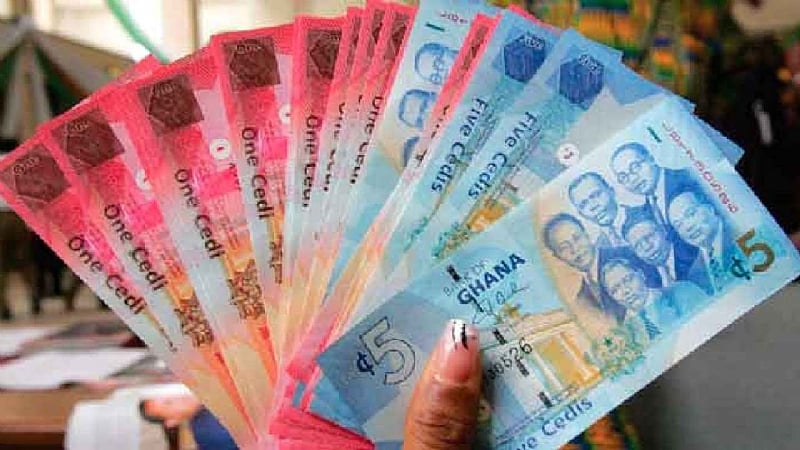The Ghanaian Cedi’s Performance Against Major Currencies: A Comprehensive Overview
The Ghanaian cedi has recently demonstrated a period of relative strength against the US dollar, a development welcomed by market observers and ordinary citizens alike. As of April 17, 2025, data compiled by Cedirates.com, a trusted source for currency information in Ghana, indicates a buying rate of GHS15.38 per US dollar and a selling rate of GHS15.81. This represents a notable appreciation compared to previous periods where the cedi experienced significant volatility and depreciation against the dollar. This positive trend suggests a potential improvement in Ghana’s economic fundamentals and could signal increased investor confidence in the Ghanaian economy. However, the stability of this appreciation remains to be seen and will depend on a variety of factors including global economic conditions, commodity prices, and domestic policy decisions.
At forex bureaus, the cedi’s performance mirrors the general trend observed in the broader market. Individuals looking to exchange US dollars for cedis can obtain a rate of GHS15.70, while those converting cedis to dollars will receive GHS16.00 for every dollar. This slight difference between buying and selling rates, known as the spread, is typical in foreign exchange transactions and represents the profit margin for the forex bureaus. The relatively narrow spread in this instance suggests a healthy and competitive foreign exchange market in Ghana. It also provides individuals with a relatively transparent and efficient mechanism for currency exchange.
The interbank market, where financial institutions trade currencies amongst themselves, presents a slightly different picture. The cedi’s buying rate against the dollar stands at GHS15.50, while the selling rate is GHS15.51. The narrower spread observed in the interbank market compared to forex bureaus is attributed to the larger volumes of currency traded and the lower transaction costs involved. This interbank rate serves as a benchmark for other exchange rates within the country and reflects the underlying strength of the cedi against the dollar in the formal financial system.
Turning to other major international currencies, the Ghanaian cedi also demonstrates a degree of stability. Against the British pound, the average exchange rate for converting pounds to cedis is GHS20.21, while converting cedis to pounds yields a rate of GHS20.98. Similarly, the euro trades at an average of GHS17.34 when exchanging euros for cedis and GHS18.06 for the reverse transaction. These rates, like those for the US dollar, are subject to fluctuations based on market conditions and the specific financial institution conducting the exchange. The interbank market rates for the pound and euro, at GHS20.54 and GHS17.65 respectively, provide further insight into the overall market dynamics.
Money transfer services offer competitive exchange rates for remittances from abroad. LemFi and Afriex, two prominent players in this space, provide rates of GHS15.39 and GHS15.40 per dollar, respectively, for transfers originating from the US or the UK to Ghana. For the British pound, LemFi offers GHS20.22 while Afriex provides a slightly higher rate of GHS20.49. Euro transfers through Afriex are priced at GHS17.64 per euro, while LemFi offers a slightly lower rate of GHS17.25. The competitive nature of the money transfer market benefits consumers by providing more choices and often more favorable exchange rates compared to traditional banking channels.
Finally, for digital subscriptions to services like Netflix, Spotify, or Apple Music paid via Visa or Mastercard, the exchange rate is fixed at GHS16.60 per dollar. This standardized rate simplifies transactions for consumers but may not always reflect the most current market rates. It’s important for consumers to be aware of this fixed rate and compare it to other available exchange rates to ensure they are receiving the best possible value for their money. The dynamics of the exchange rate for digital subscriptions highlight the importance of staying informed about currency fluctuations and utilizing the most cost-effective channels for international transactions.
The information presented provides a comprehensive snapshot of the Ghanaian cedi’s performance against major international currencies as of April 17, 2025. While the cedi’s recent appreciation against the US dollar is a positive sign, continued monitoring of these exchange rates is crucial for individuals and businesses engaged in international transactions. Understanding the nuances of different exchange rate mechanisms, from forex bureaus and interbank markets to money transfer services and digital subscription platforms, empowers consumers and businesses to make informed financial decisions. Furthermore, keeping an eye on economic indicators and policy decisions will provide a deeper understanding of the factors influencing the cedi’s value and its future trajectory. This comprehensive understanding of the currency market is essential for navigating the complexities of international finance and optimizing financial outcomes within the context of the Ghanaian economy.














